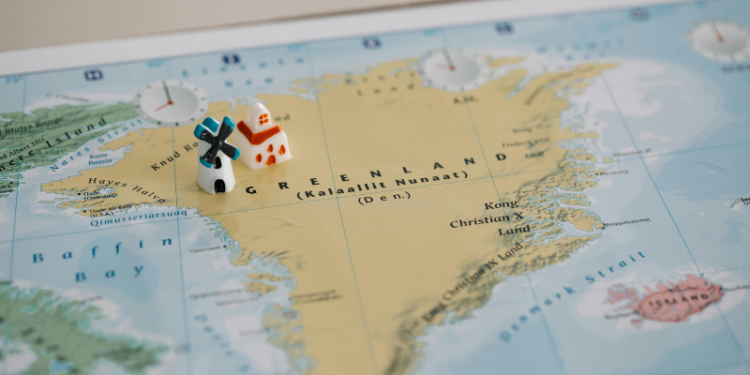United States President-elect Donald Trump reiterated his long-standing interest in acquiring Greenland at a press conference on Tuesday, January 7th, calling it a vital strategic asset for America’s future. Trump has refused to rule out using military or economic pressure to achieve this goal, emphasizing Greenland’s importance for national security and economic opportunities. This is not the first time Trump has expressed interest in purchasing the autonomous Danish territory, having made a similar proposal during his first term in office in 2019.
Greenland, the world’s largest island, lies between the Arctic Ocean and the North Atlantic, making it a key geopolitical and military outpost. The island hosts the U.S. Thule Air Base, a crucial component of America’s missile defense system. Its location offers strategic advantages for monitoring Russian and Chinese naval activities. Furthermore, Greenland is rich in untapped natural resources, including rare earth minerals essential for modern technology and clean energy development.
The Danish government swiftly responded to Trump’s comments, reaffirming that Greenland is not for sale. Prime Minister Mette Frederiksen underscored Greenland’s sovereignty, stating, “Greenland belongs to the Greenlanders, and only they can determine their future.” Greenland’s Prime Minister Mute Egede echoed this sentiment, emphasizing the island’s aspiration for greater autonomy and eventual independence. Despite diplomatic tensions, both Denmark and Greenland have sought to maintain a calm approach to avoid escalating the situation further.
Trump’s proposal has reignited discussions about the historical context of U.S. interest in Greenland. In 1946, President Harry Truman offered Denmark $100 million for the island, which was rejected. Since then, the U.S. has maintained a strategic presence in Greenland, underscoring its enduring significance in American foreign policy.
International reactions to Trump’s renewed pursuit have been mixed. European leaders, including German Chancellor Olaf Scholz and French Foreign Minister Jean-Noël Barrot, condemned any suggestion of using force or coercion, stressing the inviolability of national borders. Within Denmark, political leaders have debated how best to handle Trump’s proposal while safeguarding Greenland’s interests and autonomy.
As Trump prepares for his inauguration, experts believe the Greenland issue may shape U.S.-Europe relations in the coming years. Whether through diplomatic negotiation or economic partnerships, Trump’s pursuit of Greenland highlights America’s continued strategic ambitions in the Arctic.









